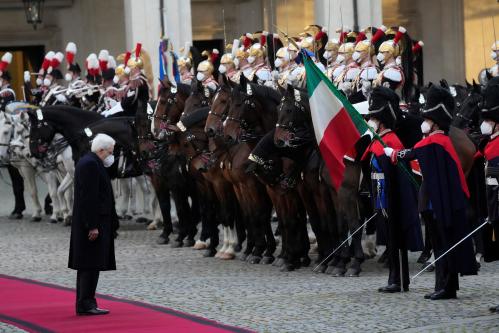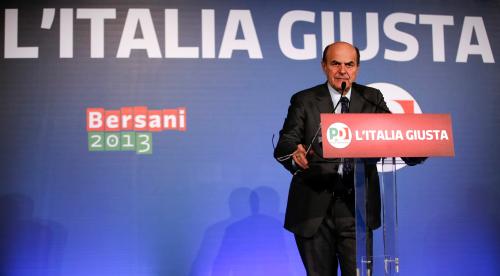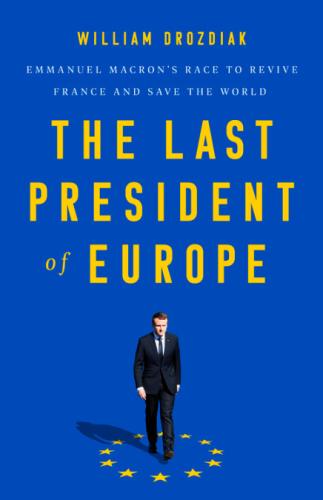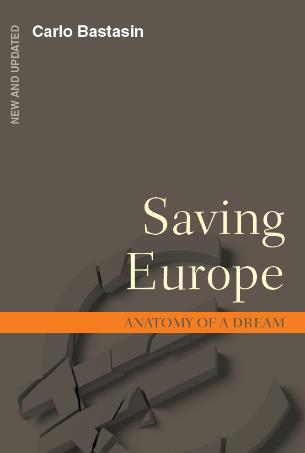Nonresident Senior Fellow Carlo Bastasin gave a virtual lecture before the LUISS University on the significance of European solidarity. The translation of the speech can be found below.
“You Europeans will not be united until you shed your blood fighting together, rather than against each other.” This prophecy that American political scientist Francis Fukuyama addressed to me in a debate in Washington a few years ago left me dismayed, but today, Europeans together count the daily victims of the coronavirus, it appears under a different light.
If the virus is indeed Europe’s common enemy, then Fukuyama’s reasoning that war, not peace, is the founding event of every nation should have united Europeans. But this does not seem to have been the case. At least initially, Europeans reacted by isolating themselves and strengthening national borders. In early March, Italy’s requests to Germany and neighboring countries for urgent supplies of sanitary material remained unheeded. Austria and Slovenia closed their borders. The head of the ECB, Christine Lagarde, said that the financial consequences were none of her business. The head of the EU Commission, Ursula von der Leyen, mocked Italy’s request for financial aid as a “slogan.”
Solidarity has been subordinated to other dimensions: economic convenience and political utility, in the first place – though even those were gauged with myopic indifference. We witnessed a fog that made the English or German, Dutch or Austrian governments – but significantly not the Greeks – think they were sheltered first from a Chinese disease and then from an Italian affair. Behind this self-deception lies the sense of “coming first”, a hierarchy that places oneself separately from others. This illusion of difference affects governments and citizens of almost all countries. Each was forced to change its mind over time at its own expense in an exercise of which UK Prime Minister Boris Johnson was the tragic prototype and Athens the capital of reason –swiftly recognizing the risk to Greeks in the Italian experience and ultimately managing the coronavirus crisis better than all other European countries. Once more in European history, nationalism and an immature pretense of superiority led to more casualties. When self-harm prevails, it really is fruitless to think that a hidden rationale is guiding the logic of governments.
Only after several weeks have national governments changed their strategy under the pressure of millions of their citizens. Italy played a role in the imagination of Europeans, who were struck both by the military tanks carrying the coffins away from Bergamo in the night, and by the naive and moving vitality of the songs floating up from Italian balconies. Rarely have life and death, but also the vain lightness of the one and the rough heaviness of the other, been in such an exemplary contrast. Observing this tragic opera, European citizens felt it was inhumane to abandon their weakest communities to their fate. It was the people who changed their governments’ attitude, both towards others and towards themselves. It was the citizens throughout Europe who were scandalized by the language of their ministers against the suffering of others.
So they rejected that mentality with which the leaders of Great Britain, Holland or Sweden, more than others – just like the generals of the nineteenth and twentieth-century armies – thought they could abandon millions of citizen-soldiers to their destiny, especially those weakened by age, calling them a “herd” and exposing them to a selection both conventionally and misleadingly defined as “natural”. In fact, even if hatred is primordial compared to other passions, it is not in human nature to remorselessly abandon the weak. It is rather part of the mentality of a world forged precisely by the rhetoric of war, but also unfortunately by an idea of the economy as a metaphor for conflict – a world in which only survivors determine who is in the right.
It is this same mentality that in 1892 led the Hamburg Senate, governed by the merchants of the German city, to facilitate the penetration of cholera into the Hanseatic city at the cost of sacrificing the poorest and most fragile of its inhabitants. An infection that, that time too, came from Asia – first from India and transported through Russia by British troops – and ravaged entire districts of the city-state. In the European public discourse, that laissez-faire mentality has returned to being defined as “Hanseatic”. Indeed, it is expressed in a similar way in the public discourse of the United States, which is already familiar with invisible victims, left-behinds and the “poor of their own fault” – a language that Europeans tend to marginalize as “Anglo-Saxon” but that, admittedly, constituted the durable alphabet of the first economic science.
The exercise of democratic rights corrected governments’ economic rationale of measuring costs in terms of human lives. Had it not been for the need for popular consensus, governments of countries that favored herd-immunity practices would have continued on the road of silence for a long time – just as the Hubei Communist Party in China must have done, causing a delay and a lack of knowledge that deceived the whole world. In this circle, the two extremes of capitalist and autocratic radicalism meet, both convinced that there is an acceptable cost in the sacrifice of the rights of the individual, which should preferably be made in silence or, at least, in a manipulated narrative.
The problem with the rationale of public intervention with respect to the rights of the individual, however, also manifests in liberal democracies, because the intervention of the State in restricting the freedom of action, movement or choice of citizens must be measured in its service for the common good.
But precisely how is the common good defined? Is it the protection of every single human life? The protection of the majority from a minority and vice versa? Or instead, to play with words, not the common good but the “common well-being” – that is, the survival of the economy? There is no single answer, because it is not only the health system that has been led to extremes by the crisis, but also the system of constitutional principles. In German it says “Not kennt kein Gebot“: in the face of necessity, there is no ban. But this is only a way to shift the discussion: what indeed is “necessity”? Does the same superior logic above the law, for example, also apply to the needs of others, obviously meaning foreigners?
Health emergencies are, in human history, moments of radical change in political culture. Historians attribute the loss of influence of the Church, as well as the conferral of a monopoly of force to States, to the plague of the fourteenth century, given the need for “police” functions to preside over the devastated territories at that time. The same happened with the importance of science that emerged after the 17th century plague. Phenomena that affect the life and death of citizens are so powerful as to radically change substance and form of political life, even today.
We do not know, for example, what will happen to the market and democracy, for which the free choice of individuals is essential. We do not know whether, by the end of this year, democracy and the market will be considered inefficient or too weak. What we are seeing is that the current state of emergency already constrains the freedom of individuals. Sovereign political actors strive to limit freedom also institutionally, increasing the role of the state by supervising individual behavior through technological means. In present-day circumstances, it does not take much effort to build ideological structures that support the state of emergency or call for authoritarian powers. Viktor Orbán’s seizure of democratic powers less than a month after the start of Hungary’s moderate health emergency serves as an illustration.
The temptation to institute more centralized control is strong as regards the economy as well. The emergency conditions caused by the coronavirus crisis push towards reducing the role of the market, consolidating public control over firms, as well as over supply chains and governance structures. The recourse to “golden powers” that protect local businesses was immediately authorized by Brussels to inaugurate the new logic of centralized decisions. It is therefore possible that this crisis, if it continues, will produce an outcome that goes in the opposite direction to the second half of the twentieth century, founded precisely on democracy and the market as vehicles for the decentralized choice of the citizen.
According to this perspective, the continuation of the European project, which by its nature requires the crossing of borders, thus the fragmentation of state power through a single market protected from monopolists, is all the more important. The interaction between states and markets within a supervised European regulatory platform is, in other words, the opposite of both the Super-state feared by nationalists and the autocracy feared by globalists. It is the place of comparison and counterbalance between powers that cease to be absolute. In this sense, Europe may remain the only area in the globe that strives to limit its internal powers for the sake of individual rights, rather than letting those powers grow unrestrained. Consequently, the question of the conditions for European solidarity – that is, for Europe’s survival – is an existential question not only for Europe, but for the future of democracy, to which we must answer.
Solidarity, a concept that depends on the time horizon
Some important specifications are needed in the definition of solidarity in non-national communities. As we asked, does need prevail over the law even if it concerns a foreigner? If we see an injured man on the street, we run to help him without first asking for his passport (or at least we should, given the many who die at sea without help in the Mediterranean). The Kantian answer is therefore “certainly yes”: assistance in the face of immediate need applies to anyone, foreigners included. It is not casual that we use the word “humanity”. So immediate aid to hospitals and patients from one European country to another European country should have not been in question.
But what can we say instead of future need? That is, the aid that will be needed to recover from the economic crisis caused by the epidemic? Here a time factor needs to be introduced – the economic aid for the recovery will be protracted over time. This presupposes a common reflection on the objective of aid and ultimately also on the hypothesis of the exchange between those who give help and those who receive it. The latter may one day be called to succor those who helped him today. Solidarity that goes beyond instant necessity requires mutual clarifications, promises, and commitments, which in turn presuppose “open contracts” and the institutions that preside over those undefined exchanges. And here is the European difficulty in agreeing on Eurobonds, a mutual responsibility on everybody’s financial needs, when asking that they come without rules attached and without conditionality.
The contrast that has developed between Germany and Italy in recent weeks should therefore be understood by taking into account both short-term and long-term needs, and keeping them separate. Immediate assistance for health reasons was not to be denied, while financial aid for the future requires precise institutional agreements, political programs and verification rules.
The different time spans are also crucial in another aspect. Behind the animosity between the states of the European Union – which is exceeding the levels reached ten years ago during the euro crisis – there is a pre-determined logic concerning the asymmetric vulnerability of each country to the economic consequences of the health crisis. In fact, if the crisis is shorter than many of us fear and we return to work before the summer, the measures already taken by the EU will have been sufficient. On the other hand, if the European economy falls into a long depression, much more powerful tools will be needed.
While some states, including Germany, may wait until summer before deciding whether the resources allocated are sufficient, others – including France, Italy, Spain and Ireland, whose public debt is close to or above 100% of their GDP – cannot run the risk of arriving late, seeing their financial position become precarious and losing control of their financial costs. In 2008, Italy’s public debt to GDP ratio was 99% and the absence of a fiscal space to confront the Greek crisis was dire. For the fiscally weaker countries, a protracted recession must be immediately staved off because even the risk of it could make their financial situation unsustainable. It is these countries that signed the letter of late March with which they asked for the issuance of common bonds. Sometimes we tend to simplify by saying that it is a North-South division. It is not. Ireland, for example, had sided with the Hanseatic countries in the past two years, defending its fiscal dumping policies, but has now turned to the Mediterranean to defend its fragile budget position. It is not ideology that is leading Europe, not even political visions, but simple opportunism. And this will continue to be the rationale if the negotiations are conducted at an intergovernmental level, and intertemporal considerations are left aside. There is no “battle of ideas,” but something more prosaic that we may call myopic politics – the only politics you will have, in fact, until common governance institutions are strengthened and legitimated.
Proof of the different space for maneuver between the European states confronting the coronavirus crisis is the size of the fiscal policy responses initially given to the crisis: in Germany, 4% of GDP; in France and Spain, around 2%; and in Italy, 1%. The effects of the crisis will therefore be asymmetrical. And this explains the diversity in the political preferences of the different countries. Once more, they are not dictated by the “moral differences” mutually imputed by Germany and Italy, but trivially by the different “budget margins”. Different fiscal space allows for different state interventions and stronger or weaker support for each national economic system. Consequently, even a short-term asymmetry in the fiscal response is going to disrupt the level playing field on which a single market is supposed to work. The whole economic architecture of the European Union will be shaken. Another even more compelling factor should be part of the assessment that all countries must share now: the tools used by the EU so far are largely sufficient to counter a short recession, but completely inadequate to overcome a long depression. In the event of a depression, neither the euro nor the European Union would survive the social and political repercussions.
The risk for Europe justifies avoiding doing too little, too late. Paradoxically, however, little more needs to be done for today’s emergency because the money available is sufficient, while much more ought to be decided immediately for tomorrow. Defense and security, automation of the economy, standardization of social security and education systems, revitalization of health systems and environmental practices need to be planned as a common European backbone. There is no doubt that all this requires using Eurobonds as financial instruments, but more for tomorrow than for today, and certainly not to mutualize past debts. It is incorrect to morally equate solidarity in immediate help and in planning for the future.
The Brookings Institution is committed to quality, independence, and impact.
We are supported by a diverse array of funders. In line with our values and policies, each Brookings publication represents the sole views of its author(s).










Commentary
Europe’s reasons for solidarity
April 15, 2020